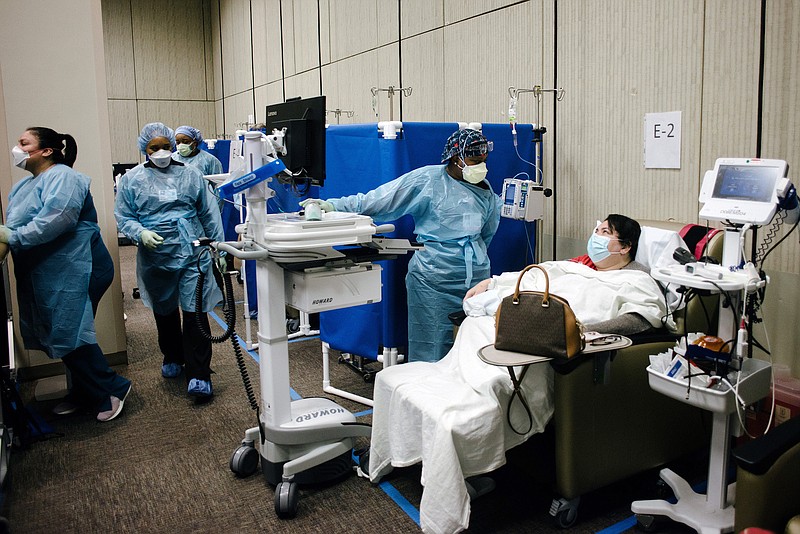One of the grand promises of America is what I've always understood to be a national commitment to progress. Inertia is unacceptable. Failure is not an option. The country will always learn from its mistakes, grow wiser and become exceptional in all things, from mail service to cancer treatment. We shall run miles ahead of other countries.
In farming and industry, in medicine and aerospace - you name it, we will build upon what earlier generations achieved. With public schools and world-leading universities, we will replace superstition and ignorance with science and enlightenment.
I am not sure how such inflated ideas got into my head. It might have been nationalist propaganda. Or maybe it was from growing up during the space race and the modern environmental movement. Or perhaps the notion of eternal progress came from my older brother, an accomplished scientist. Progress seems innate to science - discovery being the threshold to advances in the quality of our lives.
But the lingering pandemic has changed my view. While most Americans welcome medical progress and respect public health edicts, many others resent the whole thing as some sort of plot against personal freedom.
Look where we are.
Last week, the number of Americans who have died from COVID-19 surpassed the toll from the 1918-1919 flu pandemic. The country was a lot smaller back then, with less than a third of the population we have now. Still, there's heavy symbolism in the number of American dead (675,000) from a communicable disease in the 21st century. That it matches the toll from a pandemic a century ago is not only tragic, it's shattering.
Americans who presumably know better resisted efforts at social distancing and resented edicts against public gatherings. Many still refuse to get vaccinated, question medical science as if they live in ancient times and, incredibly, allow their politics to interfere with their survival instincts. Under the flag of personal freedom, they continue to oppose the most effective medical practices, established over the last century, to save lives: social distancing, wearing masks, getting vaccinated.
Whatever happened to progress? And what happened to surrendering a little personal liberty for the greater good?
In America, a lot of progress was achieved long before most of us were born. There was a Progressive Era, starting in the late 19th century and extending for some 30 years into the 20th century. It was a time of political reforms but also great strides in public health.
Baltimore mandated the pasteurization of milk; opened public baths for its poorest citizens; closed sweatshops, and started cleaning streets. The city banned spitting in public places to stop the spread of tuberculosis.
You might consider all of that low-hanging fruit. Who would object to clean drinking water? But not all reforms came easy, and a key to making them work was public acceptance - that is, people had to give up some individual liberties, like spitting on a streetcar or in a saloon, for the sake of others, and they did.
During that same period, public health authorities learned what practices would be needed to fight off a pandemic, and when one arrived in 1918, they proved effective. "Early and sustained imposition of gathering bans, school closures, and other social-distancing measures significantly reduced mortality rates," Nancy Tomes, a historian, wrote in a 2010 paper on the crisis.
But social distancing and lockdown measures were difficult to implement everywhere in a country that had become more populated, more mobile, connected and crowded.
A doctor, reflecting on the 1918-1919 influenza, called it "destroyer and teacher."
It's the teaching part that, 100 years on, we should ponder - that idea, again, of knowledge built on knowledge, progress built on progress. What doctors, virologists, epidemiologists learned from the 1918-1919 pandemic should have been honored, from the start, by those of us who enjoy the benefits of American life in the 21st century.
That's what gets me - that so many in a nation that considers itself exceptional would fight and even ridicule a medical establishment that has vaccinated millions against deadly diseases, transplanted thousands of organs, made steady advances in treating cancer and saved countless lives.
The Baltimore Sun
